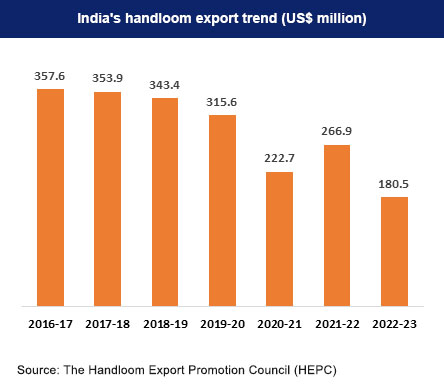National Handloom Day is observed every year on 7 August. It aims to honour of the handloom industry and its weavers across India. This Year, India will observe the 7th National Handloom Day.
The theme of National Handloom Day 2022
National Handloom Day is observed every year on 7 August. It aims to honour the handloom industry and its weavers across India. This year’s theme is yet to be announced.
There is a celebration by various ministries. Last year’s celebration took place at Dilli Haat, New Delhi with a national-level handloom expo organized by the textile ministry. Union minister for finance Nirmala Sitharaman participated in celebrations in Andhra Pradesh’s Ponduru village and laid the foundation stone for the Khadi Artisans Group Workshed.
Quick facts Handloom
Here are quick facts Handloom Industry in India:
- Women are 70% of India’s handloom weavers and affiliated employee communities. Hence, it plays an important role in women’s emancipation.
- This sector contributes nearly 19% of the total cloth produced in the country and adds substantially to export earnings.
- The handloom industry is the country’s largest cottage industry, with 23.77 lakh looms. It is also the second-largest employment provider in the rural region employing more than 3 million people in direct and allied activities.
- For a long time, the handloom and artisan industries have supported India’s soft power by providing their hard work and ensuring monetary flow.

History of National Handloom Day
In 2015, Prime Minister Narendra Modi declared August 7 National Handloom Day. Madras University’s Centenary Hall hosted the auspicious ceremony. August 7 was declared National Handloom Day by the Union government in 2015 to commemorate the Swadeshi Andolan that started in 1905. Basically, it’s about encouraging Indians to wear clothes made by indigenous communities instead of foreign-made clothes.
Read Also: 27 August in Indian and World History







